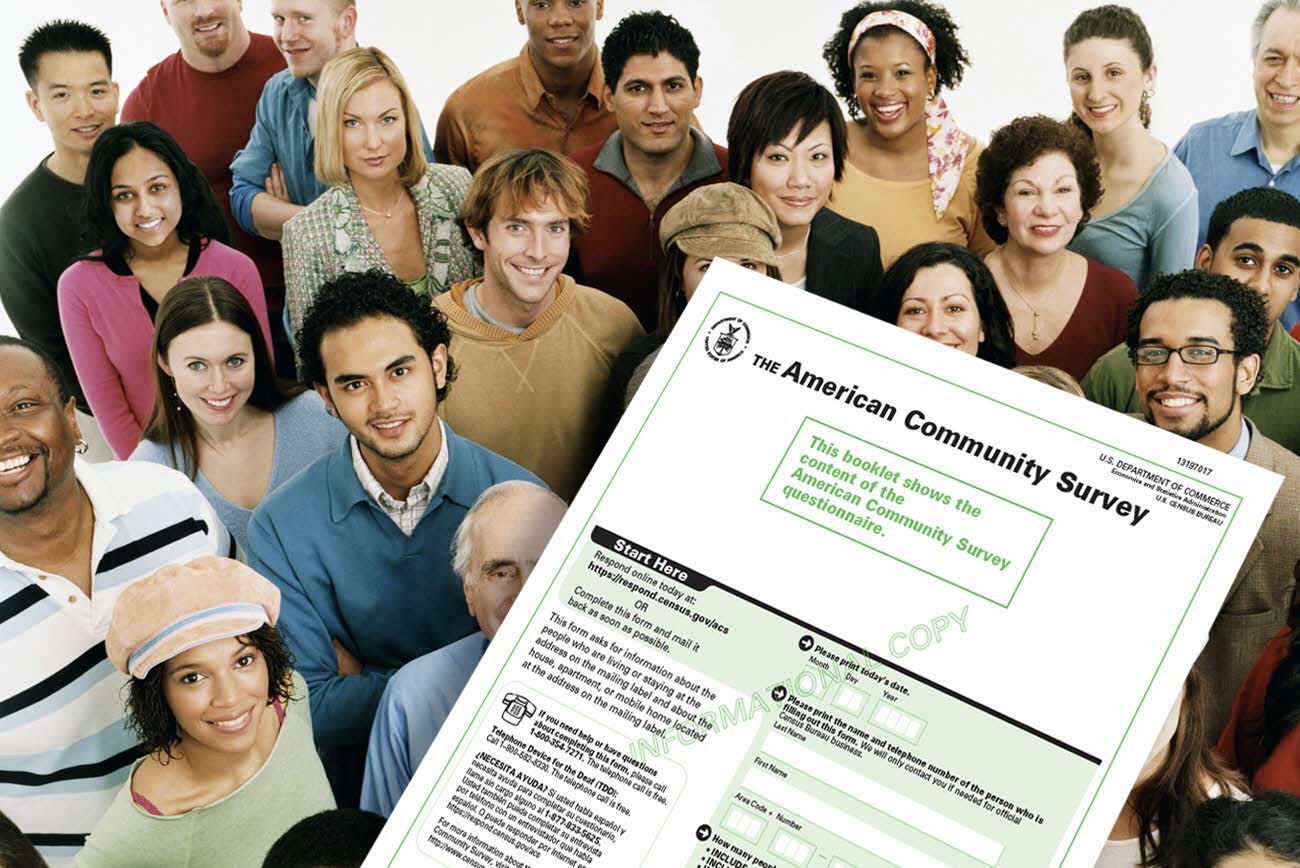Only Way to Get Detailed Economic, Social Characteristics of Local Areas is to Ask
When governments, businesses and community leaders make decisions that affect our future, they need the most up-to-date and reliable information to make smart and strategic decisions that will benefit communities and the country.
As the only source of detailed social and economic characteristics of local communities, the American Community Survey (ACS) provides current and consistent information on topics including employment, education, language spoken at home, and housing costs.
So, we may think we know everything about our communities, but in reality the ACS provides us with timely information down to the local level.
On Thursday, the 2013-2017 ACS five-year estimates are scheduled to be released, offering a detailed portrait of communities ranging from rural America to suburbia and major urban centers.
Many people don’t realize that most of the questions on the ACS have been asked for decades as part of the decennial census, but were moved to the ACS in an effort to meet the demand for more current, nationally consistent data.
Questions on the ACS support a number of programs that have real impacts on people’s lives.
- Number of vehicles available and disability status. These questions help communities identify where people without access to vehicles and the most vulnerable populations live in order to plan evacuations and emergency management. Communities can strategically target their emergency planning efforts where they’re needed most using this information.
- What time people leave for work. This question helps transportation planners understand commuting patterns, which is crucial for improving road and highway infrastructure.
- Number of rooms and number of people living in a housing unit. Data combined from these questions provide a ratio of people to rooms, which is used to measure the extent of overcrowding in our nation’s households. These statistics also help enforce laws, policies and regulations against discrimination in government programs and in society.
- Internet access. Mobile and web communication seems widespread to most of us but there are still communities without internet access. This is a real concern when a local area needs to determine how to communicate important public health or safety information.
- Plumbing or kitchen facilities. Everyone has hot and cold running water, a shower, sink, stove or refrigerator, right? Not true. Asking these questions helps local, state, tribal and federal agencies determine housing quality and allows them to plan, fund and determine eligibility for housing assistance programs, rehabilitation loans and other programs that help people access and afford decent, safe and sanitary housing.
So, we may think we know everything about our communities, but in reality the ACS provides us with timely information down to the local level.
Having a trusted source like the U.S. Census Bureau collect this information ensures that it is available consistently for areas across the country. The data from the ACS serve as an equal measuring stick across the nation and allow communities to get their fair share of federal and state funds, ultimately benefiting their quality of life.
Visit Questions on the Form and Why We Ask to browse some of the most popular results from these questions and view the question as it appears on the form. We also provide information on the origin of the question, how we protect your privacy, and how ACS statistics help communities.
Subscribe
Our email newsletter is sent out on the day we publish a story. Get an alert directly in your inbox to read, share and blog about our newest stories.
Contact our Public Information Office for media inquiries or interviews.
-
PopulationHow Census Bureau Data Can Help Older Americans Afford HousingNovember 27, 2018King County, Wash., increased enrollment in a housing affordability program for older Americans using the American Community Survey.
-
PopulationAdministrative Records Offset Declining Census Survey ResponseNovember 20, 2018Administrative records have the potential to reduce the amount of information the Census Bureau requests from respondents.
-
PopulationJumping Into Action When Disaster StrikesNovember 13, 2018The Census Bureau’s Emergency Preparedness and Response Team coordinates and disseminates demographic and economic data to emergency managers and the public.
-
Business and EconomyWhat Is the Nonemployer Marine Economy?April 09, 2025Thirty states had nonemployer businesses in marine economy sectors, including six states in the Midwest with receipts totaling nearly $11 billion in 2022.
-
Business and EconomyEconomic Census Geographic Area Statistics Data Now AvailableApril 07, 2025A new data visualization based on the 2022 Economic Census shows the changing business landscape of 19 economic sectors across the United States.
-
Income and PovertyWhat Sources of Income Do People Rely On?April 02, 2025A new interactive data tool shows income sources for hundreds of demographic and economic characteristic combinations.
-
Business and EconomyBig Improvements to the Annual Integrated Economic Survey (AIES)March 26, 2025The Census Bureau is making several changes and enhancements to capture 2024 economic data based on feedback from last year’s survey.






